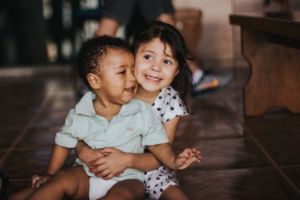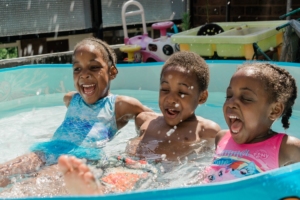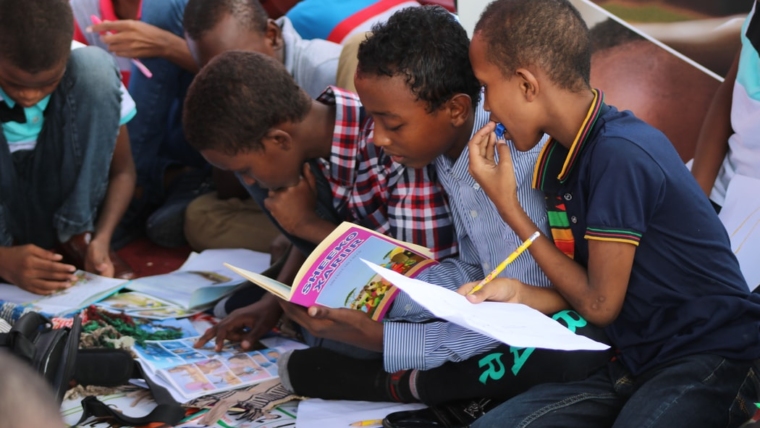Empathy is the ability to understand and share feelings. It is the ability to relate to another person by putting yourself in their shoes. When you show concern about someone else’s situation or feelings, you empathise with that person.
Why is it important to develop empathy in children?

Empathetic people have the ability to connect with others on a deeper level and can lead to individuals being more understanding, forgiving and compassionate towards others.
With ongoing societal issues like bullying and crime, teaching empathy to children today is more important than ever and is essential for our society to function more effectively.
Impact of Fiction vs Non-Fiction on building empathy
Research shows that fiction is more effective than nonfiction at changing a person’s views about people different from ourselves.
When children read a textbook or news article, there is a part of their brains that is thinking analytically, weighing and judging. On the other hand, when children are drawn into a great story, they connect to its characters emotionally and end up feeling an authentic empathy for them. In fact, the more entertaining and captivating the story, the more effective it is at changing assumptions and challenging stereotypes.
As a result, reading fiction provides an excellent training for young people in developing and practicing empathy and theory of mind, that is, understanding of how other people feel and think. That’s because literary fiction is essentially an exploration of the human experience. Through reading, we actually become better at understanding other people and what motivates them.
Scientific Proof that reading Fiction builds Empathy
Neuroscience has proven that fiction tricks our brains into thinking we are part of the story. The empathy we feel for characters wires our brains to have the same sensitivity towards real people. When you get lost in a book, your brain lives through the characters at a neurological level.
Empathy grows through exposure to a range of Life Experiences
“A reader lives a thousand lives before he dies.”
Through reading fiction, children can be exposed to life circumstances that are very different from their own and experience the world as another gender, ethnicity, culture, profession or age. Words on a page can introduce a child to what it’s like to lose a competition, be bullied, move to new city or lose a grandparent. This can powerfully influence how a child relates to others in the real world.
Take Action

Are you ready to set your child up for a lifetime of happiness, success and meaningful human connection? If so, take the following three steps to build your child’s empathy through reading fiction.
Step 1: Pick the Right Books
The first thing is to find the right story. One approach is to find texts exploring familiar life scenarios to help children understand what their peers might be experiencing. In general, look for texts with well-rounded, believable characters. Even if they are doing terrible things, the story should help children understand a character’s motivations. Feelings should be dealt with subtly and not over-described.
Step 2: Ask “What if.”
Encourage children to really step into the shoes of different characters by asking them, “What if…that happened to you, what would you do, what would you say?”.
Step 3: Ask “How would you feel?”
Ask your child if they can relate to the character’s experience, “Has something like that ever happened to you? How did it make you feel?”. For young children, point out the faces or body language of the charters illustrations and ask how they might guess that person is feeling.
As you take these steps, you will see your child grow in empathy and become a kinder, more understanding and compassionate person.
My Reflection Children’s Bookstore provides children’s books with diverse main characters to promote self-love and a love for reading among children.
Shop online at www.myreflectiontt.com for delivery to any address in Trinidad & Tobago.
Keep in touch with us by joining our newsletter and by following us on Facebook and Instagram
- www.instagram.com/myreflectiontt
- www.facebook.com/myreflectiontt




2 Comments
Comments are closed.